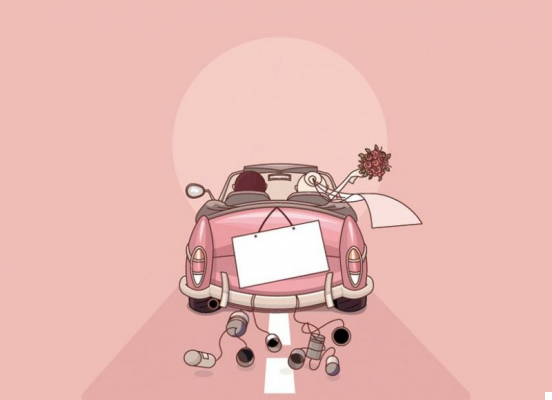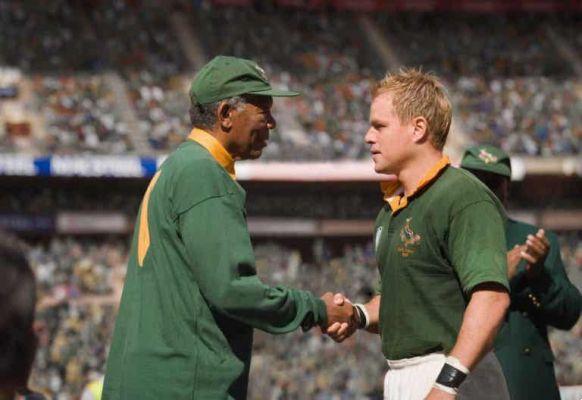There are many people who would have liked to have a more present and understanding father or a more loving mother ... What can we do when the sense of emptiness for what we have not had affects our present?

Written and verified by the psychologist GetPersonalGrowth.
Last update: 15 November 2022
The parents we would have liked to have and did not have: an emptiness accompanied by the almost persistent feeling that something was missing in our existence. A wound that continues to hurt and accompanies throughout life, while maintaining relationships with the "real" parents who are, after all, an important part of life.
There are endless ways to be a good mother and a good father. It's surprising, but there are also multiple ways not to be. However, the cultural myth persists that paternity or motherhood almost automatically gives a person good parenting skills. It is assumed that all children are loved and their well-being is always considered a priority.
It is evident that this is not always the case. Sometimes we are forced to accept that the world can be as unfair as it is strange. That there are bad fathers and unwilling mothers, just as there are children who do not love their parents and who are violent towards the latter.
But what can be done when we haven't had the parents we wanted and carry deep sadness within us?
Parents who do not love their children
There are some types of parenting and educational models that are invisible to most. We are talking about those parenting styles that, even without physical abuse, have shortcomings that go unnoticed in the eyes of others. These ways of parenting have nothing to do with child neglect and are often even compatible with activities such as taking children to the park, zoo, or movie theater.
When certain behaviors are absent, the child perceives it, regardless of his age. Because every person who comes into the world needs love, security and a valid bond that enriches emotionally. If this is not present or not adequately, the child feels it, whether he is 3 or 12 years old.
Parents who cannot give affection have a number of specific traits and behaviors. These are profiles in which disapproval, meaningless gestures, emotional coldness or high expectations often appear. We analyze these types below.
Parents who fail to give affection
There are parents who do not love their children. Just as there are parents who, while loving their children infinitely, do it the wrong way. The reasons why this happens are many and it is not so easy to define them. In some cases they didn't really want to be a father or a mother, but they still took the plunge.
At other times, we may be faced with mental disorders or simply a conflict with other interests. Be that as it may, the resulting psychological damage is enormous. So much so that according to studies such as the one conducted at Columbia University, these kinds of experiences are experienced by the brain in the same way it processes physical pain.
Narcissistic parents
Who doesn't dream of a father and mother capable of giving love without compromise? Instead, we sometimes have to deal with narcissistic parents who only prioritize themselves.
In these situations, no matter what a child wants or needs, their priorities are secondary. It only matters what the father or mother wants.
Parents who want to exercise control
There are families who love to exercise control, who do not allow their children to be themselves, to grow, to mature or to make their own life choices.. Authoritarian parents resort to punishment and leave deep marks as they clip their wings and fill the mind with deep insecurities. This type of parenting and education leaves a profound mark on personal development.
Parents with preferential love
There are fathers and mothers who profess a preferential love for one of their children. This selective love for the favorite son or daughter causes them to neglect the other or the others, leaving them in the background and bewildered.
Children who are thus ousted don't know what they did wrong, they don't understand why parental affection is sometimes conditioned.
The sign of the shortage
Parents we wish we had and didn't have leave a permanent mark. It is the sign of lack, of the feeling of not having received what we needed. Sometimes it is the misunderstanding of why certain things went the way they did. The disappointment that is intertwined with sadness and sometimes even with anger, runs through the past and the present.
How can we deal with those feelings?
Accept that our parents aren't perfect
The first step in overcoming the wound that often leads us to have a bad relationship with our parents is acceptance. It is also good to understand that our parents are not perfect, that they have not acted in the best way and that the past cannot be changed.
Accepting the experience does not mean giving up, it means validating every emotion felt, every disappointment and experience in order to move forward.
The fault is not ours
There are many people who, still in adulthood, continue to think that they have not received affection from their parents for having done something wrong.
No child or adult is guilty that one or both parents do not love them as they deserve. The responsibility always lies with the parents.
We deserve love
If the parents that life has given us are not what we expected it is difficult to give them a second chance or make up for the past. However, one thing must be clear. We deserve love, and the affection we don't get from our parents can come from many other people: friends, partners, brothers, uncles ...
Love, whatever its origin, always nourishes and enriches. The sincere affection of the present is the cure for every deficiency of the past.


























